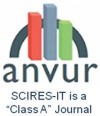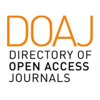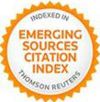Abstract
Keywords
Full Text:
PDFDOI: http://dx.doi.org/10.2423/i22394303v10n2p141
References
Armstrong, L., Bailey, J., Julier, G., & Kimbell, L. (2014). Social Design Futures: HEI Research and the AHRC. Brighton: University of Brighton.
Badland, H., & Pearce, J. (2019). Liveable for whom? Prospects of urban liveability to address health inequities. Social Science and Medicine, Vol. 232, pp. 94–105. https://doi.org/10.1016/j.socscimed.2019.05.001
Bauman, Z. (2007). Voglia di Comunità. Bari: Laterza.
Bechtel, R. B., & Churchman, A. (2002). Handbook of environmental psychology. New York: J. Wiley & Sons.
Benjamin, W. (1969). The Work of Art in the Age of Mechanical Reproduction. New York: Schocken Books.
Benkler, Y. (2006). The wealth of networks: how social production transforms markets and freedom. New Haven: Yale University Press.
Bennett, W. L. (2008). Changing citizenship in the digital age. Civic Life Online: Learning How Digital Media Can Engage Youth, 1, 1–24.
Berkes, F., Feeny, D., McCay, B. J., & Acheson, J. M. (1989). The benefits of the commons. Nature. https://doi.org/10.1038/340091a0
Bianconi, F. (2016). La costruzione del paesaggio umbro. In A. Berrino & A. Buccaro (Eds.), Delli Aspetti de Paesi. Vecchi e nuovi Media per l’Immagine del Paesaggio (Vol. 1, pp. 545–552). Napoli: CIRICE - Centro Interdipartimentale di Ricerca sull’Iconografia della Città Europea.
Bianconi, F., & Filippucci, M. (2013). Le costruzioni digitali. Un gioco sapiente, rigoroso e magnifico. Idee per La Rappresentazione 5: Atopie. Atti Del Seminario Di Studi, 73–90. Perugia: Artegrafica.
Bianconi, F., & Filippucci, M. (2018). Rappresentazione, percezione, progetto. Il ruolo dell’Università per Perugia città smart. Rappresentazione Materiale/Immateriale - Drawing as (in) Tangible, 37–48. Roma: Gangemi.
Bianconi, F., & Filippucci, M. (2019). Visione e disegno . Percezione, rilievo e progetto per nuovi modelli di spazi urbani. In Mondi e modi dell’abitare Per una Sociologia della convivenza (pp. 81–104). Soveria Mannelli (CZ): Rubbettino.
Bianconi, F., Filippucci, M., & Felicini, N. (2019). Immersive Wayfinding: virtual reconstruction and eye-tracking for orientation studies inside complex architecture. ISPRS - International Archives of the Photogrammetry, Remote Sensing and Spatial Information Sciences, XLII-2/W9, 143–150. https://doi.org/10.5194/isprs-archives-xlii-2-w9-143-2019
Bianconi, F., Filippucci, M., & Seccaroni, M. (2019). Survey and co-design the urban landscape. Innovative digital path for perception analysis and data-driven project. International Archives of the Photogrammetry, Remote Sensing and Spatial Information Sciences - ISPRS Archives. https://doi.org/10.5194/isprs-archives-XLII-2-W15-165-2019
Bianconi, F., Filippucci, M., & Seccaroni, M. (2020). Nuovi modelli responsivi. Competenze, strumenti e azioni per i paesaggi contemporanei. In M. C. Federici & U. Conti (Eds.), Vivere i territori mediani: Identità territoriali, emergenze sociali e rigenerazione dei tessuti urbani (pp. 99–122). Milano: Maltemi. Retrieved from https://books.google.it/books?hl=en&lr=&id=3tTrDwAAQBAJ&oi=fnd&pg=PT36&dq=filippucci+ seccaroni&ots=RwOzFWit-J&sig=KVnrsv8aQYXTiRshLMtlcWPCR5U
Bobbio, L. (2007). Amministrare con i cittadini: viaggio tra le pratiche di partecipazione in Italia. Soveria Mannelli (CZ): Rubbettino.
Carpentier, N. (2011). Media and participation : a site of ideological-democratic struggle. Bristol: Intellect. Retrieved form: DOI 10.26530/OAPEN_606390
Carr, S. (1992). Public space. Cambridge: Cambridge University Press.
Cavallucci, F. (1990). San Sisto. Da territorio a quartiere. Perugia: Protagon.
Ciaffi, D., & Mela, A. (2006). La partecipazione: dimensioni, spazi, strumenti. Roma: Carocci.
Ciaffi, D., & Mela, A. (2011). Urbanistica partecipata: modelli ed esperienze. Roma: Carocci.
Coleman, S., & Blumler, J. G. (2009). The Internet and democratic citizenship: theory, practice and policy. Cambridge: Cambridge University Press.
Conti, M., Passarella, A., & Das, S. K. (2017). The Internet of People (IoP): A new wave in pervasive mobile computing. Pervasive and Mobile Computing, Vol. 41, pp. 1–27.
Corburn, J. (2004). Confronting the challenges in reconnecting urban planning and public health. American Journal of Public Health, 94(4), 541–546. Retrieved from https://ajph.aphapublications.org/doi /abs/10.2105/AJPH.94.4.541
Cruz, T. (2011). Latin America Meander: In search of a new civic imagination. Architectural Design, 81(3), 110–118. https://doi.org/10.1002/ad.1248
De Carlo, G., & Marini, S. (2013). L’architettura della partecipazione. Macerata: Quodlibet.
de Waal, M. (2013). The city as interface : how digital media are changing the city. Rotterdam: NAI Uitgevers/Publishers Stichting.
Fera, G. (2008). Comunità, urbanistica, partecipazione: materiali per una pianificazione strategica comunitaria. Milano: FrancoAngeli.
Filippucci, M. (2011). Fatta ad arte: l’immagine della città e l’immaginario occidentale. L’arte, la chiesa, la piazza, il meme nel caso studio di Perugia. In P. Belardi & et alii (Eds.), Artefatti: fatti d’arte _ fatti ad arte _ fatti ed arte (pp. 202–205). Perugia: Artegrafica.
Filippucci, M. (2013). Disegno e figurazione, scrittura e oralità. L’immagine della città e il valore della percezione per la ricerca delle scienze della rappresentazione. In Linee di Ricerca nell’area del Disegno. Approfondimenti dalle tesi di dottorato (pp. 300–308). Roma: Aracne.
Filippucci, M., & Bianconi, F. (2017). Lavoro e paesaggio per la ricostruzione post-sisma. In Atti del XVII Congresso nazionale CIRIAF. Sviluppo Sostenibile, Tutela dell'Ambiente e della Salute Umana (Cod_083, pp 1-20). Perugia: Ciriaf.
Forlani, M., Pietroni, E., Rescic, L., Rufa, C., & Antinucci, F. (2016). Game embrace siegecraft in "protect the walls!" SCIRES-IT - SCIentific RESearch and Information Technology, 6(1), 31-40. http://dx.doi.org/10.2423/i22394303v6n1p31
Friedmann, J. (1987). Planning in the public domain: from knowledge to action. Princeton: Princeton University Press.
Galilee, B. (2012). WikiHouse: open-source housing. Domus, (959), 72–74.
García-León, J., Sánchez-Allegue, P., Peña-Velasco, C., Cipriani, L., & Fantini, F. (2018). Interactive dissemination of the 3D model of a baroque altarpiece: a pipeline from digital survey to game engines. SCIRES-IT - SCIentific RESearch and Information Technology, 8(2), 59-76. http://dx.doi.org/10.2423/i22394303v8n2p59
Gardner, R., Ostrom, E., & Walker, J. M. (1990). The Nature of Common-Pool Resource Problems. Rationality and Society, 2(3), 335–358. https://doi.org/10.1177/1043463190002003005
Gehl, J. (1991). Vita in città : spazio urbano e relazioni sociali. Bologna: Maggioli.
Gehl, J., & Svarre, B. (2013). How to study public life. In How to Study Public Life. https://doi.org/10.5822/978-1-61091-525-0
Goldhagen, S. W. (2017). Welcome to Your World. How the Built Environment Shapes Our Lives. New York: HarperCollins.
Hampton, K. N. (2016). Persistent and Pervasive Community. American Behavioral Scientist, 60(1), 101–124. https://doi.org/10.1177/0002764215601714
Harvey, D. (2011). The Future of the Commons. Radical History Review, (109), 101–107. https://doi.org/10.1215/01636545-2010-017
House, J. S., Landis, K. R., Umberson, D., & Umberson, D. (2007). Social Relationships and Health. Science, 241(4865), 540–545. Retrieved from http://science.sciencemag.org/content/241/4865/540.short
Huizinga, J. (1946). Homo ludens. Torino: Einaudi.
Iansiti, M., & Lakhani, K. L. (2015). Digital Ubiquity: How Connections, Sensors, and Data Are Revolutionizing Business. CFA Digest, 45(2), dig.v45.n2.8.
Jackson, L. E. (2003). The relashionship of urban design to human health and condition. Landscape and Urban Planning, 64(4), 191–200.
Jacobs, J. (1961). The death and life of great American cities. New York: Random House.
Kreiss, D. (2015). The problem of citizens: E-democracy for actually existing democracy. Social Media+ Society, 1(2), 1–11.
Kuliga, S. F., Thrash, T., Dalton, R. C., & Hölscher, C. (2015). Virtual reality as an empirical research tool - Exploring user experience in a real building and a corresponding virtual model. Computers, Environment and Urban Systems, 54, 363–375.
Lee, A. C. K., & Maheswaran, R. (2011). The health benefits of urban green spaces. Journal of Public Health, 33(2), 212–222. Retrieved from https://academic.oup.com/jpubhealth/article-abstract/33/2/212/1585136
Leeuw, E. de. (1999). Healthy Cities: urban social entrepreneurship for health. Health Promotion International, 14(3), 261–270. https://doi.org/10.1093/heapro/14.3.261
Ling, R. S. (2008). New tech, new ties: how mobile communication is reshaping social cohesion. Cambridge, Massachusetts: MIT Press.
López Méndez, M. D. C., González Arrieta, A., Queiruga Dios, M., Hernández Encinas, A., & Queiruga-Dios, A. (2017). Minecraft as a tool in the teaching-learning process of the fundamental elements of circulation in architecture. Advances in Intelligent Systems and Computing, 527, 728–735. Springer Verlag. https://doi.org/10.1007/978-3-319-47364-2_71
Maddalena, P., & Settis, S. (2014). Il territorio bene comune degli italiani: proprietà collettiva, proprietà privata e interesse pubblico. Roma: Donzelli.
Manzini, E., & Rizzo, F. (2011). Small projects/large changes: Participatory design as an open participated process. CoDesign, 7(3–4), 199–215. https://doi.org/10.1080/15710882.2011.630472
Martinelli, F. (2002). La città. I classici della sociologia. In Sociologia urbana e rurale. Roma: FrancoAngeli. Retrieved from https://www.francoangeli.it/Riviste/Scheda_Rivista.aspx?IDarticolo=18521
McLuhan, M. (2008). The medium is the massage : an inventory of effects. London: Penguin.
Melelli, A. (1973). La ferrovia Ancona-Roma. Bologna: Calderini.
Nijholt, A. (2017). Playable Cities. Singapore: Springer.
Norberg Schulz, C. (1979). Genius loci: paesaggio, ambiente, architettura. In Saggi. Milano: Electa.
Ostrom, E. (2015). Governing the commons : the evolution of institutions for collective action. Cambridge University Press.
Ostrom, E., Burger, J., Field, C. B., Norgaard, R. B., & Policansky, D. (1999). Revisiting the commons: Local lessons, global challenges. Science, 284(5412), 278–282. https://doi.org/10.1126/science.284.5412.278
Pallasmaa, J. (1994). Identity, intimacy and domicile. Notes on the phenomenology of home. Finish Architectural Review, 1–16.
Papacharissi, Z. (2010). A private sphere: democracy in a digital age. Cambridge: Polity Press.
Parvin, A. (2013). Architecture (and the other 99%): Open-Source Architecture and Design Commons. Architectural Design, 83(6), 90–95. https://doi.org/10.1002/ad.1680
Polizzi, E., & Bassoli, M. (2011). La governance del territorio: partecipazione e rappresentanza della società civile nelle politiche locali. Roma: FrancoAngeli.
Pool, I. de S. (1983). Technologies of freedom. Cambridge: Belknap Press of Harvard University Press.
Priavolou, C., & Niaros, V. (2019). Assessing the openness and conviviality of open source technology: The case of the WikiHouse. Sustainability (Switzerland), 11(17), 4746. https://doi.org/10.3390/su11174746
Purini, F. (1992). Il progetto e il luogo. In F. Moschini & G. Neri (Eds.), Dal Progetto. Scritti teorici di Franco Purini. Roma: Kappa edizioni.
Ratti, C., & Mattei, M. G. (2013). Smart city, smart citizen. Milano: EGEA.
Rosanvallon, P. (2006). La contre-démocratie : la politique à l’âge de la défiance. Paris: Seuil.
Rossi, A., & Huet, B. (1984). Tre citta : Perugia, Milano, Mantova. Milano: Electa.
Rossi, U., & Enright, T. (2016). Ambivalenza dei commons. In Commons/Comune. Geografie, luoghi, spazi, città (pp. 37–46). Firenze: Società di Studi Geografici.
Rowe, P. G. (1996). Shaping Design Education. In Reflections on Architectural Practice in the Nineties (p. 272). New York: Princeton Architectural Press.
Sargiacomo, M., D’Amico, L., & Di Pietra, R. (2016). Accounting and Food : Some Italian Experiences. London: Routledge.
Sclavi, M. (2002). Avventure urbane. Progettare la città con gli abitanti. Torino: Eleutheria.
Settis, S. (2014). Azione popolare: cittadini per il bene comune. Milano: Einaudi.
Settis, S., & Mengo, D. (2013). Il paesaggio come bene comune. Napoli: La Scuola di Pitagora.
Shepard, M. (2011). Sentient city. Ubiquitous computing, architecture, and the future of urban space. Cambridge, Massachusetts: MIT Press.
Smith, G. (2009). Democratic innovations: Designing institutions for citizen participation. Cambridge: Cambridge University Press.
Sunstein, C. R. (2001). Republic.com. Princeton: Princeton University Press.
Touraine, A. (2008). La globalizzazione e la fine del sociale: per comprendere il mondo contemporaneo. Milano: Il saggiatore.
Tzoulasa, K., Korpelab, K., Vennc, S., Yli-Pelkonenc, V., Kaźmierczaka, A., Niemelac, J., & Jamesa, P. (2007). Promoting ecosystem and human health in urban areas using Green Infrastructure: A literature review. Landscape and Urban Planning, 81(3), 167–178. https://doi.org/10.1016/j.landurbplan.2007.02.001
Wellman, B. (2001). Physical place and cyber place: The rise of networked individualism. International Journal of Urban and Regional Research, 25(2), 227–252.
Article Metrics
Metrics powered by PLOS ALM
Refbacks
- There are currently no refbacks.
Copyright (c) 2020 Fabio Bianconi, Marco Filippucci, Filippo Cornacchini

This work is licensed under a Creative Commons Attribution-NonCommercial-NoDerivatives 4.0 International License.
SCIRES-IT, e-ISSN 2239-4303
Journal founded by Virginia Valzano





